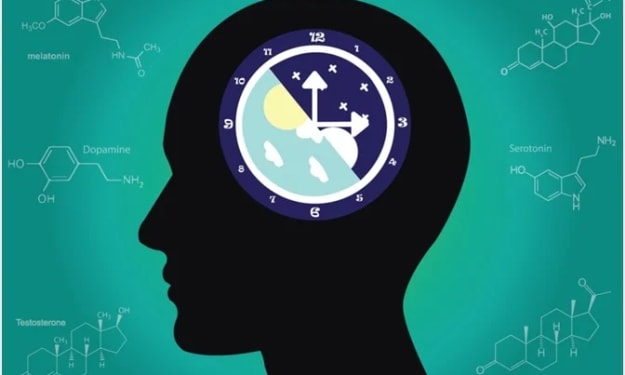The Science of Sleep: Understanding the Basics for Better Health
Health sleep

Introduction
Sleep is a universal human experience that is essential for our overall health and well-being. However, the science behind sleep remains a fascinating and complex subject. In this article, we will delve into the basics of sleep, exploring its stages, functions, and the factors that influence it. By understanding the scientific foundations of sleep, we can gain valuable insights into the importance of quality rest and its impact on our physical, mental, and emotional health.
The Sleep Cycle and Stages
Sleep is a dynamic process that consists of various stages, each serving a specific purpose. The sleep cycle is typically divided into two main categories: non-rapid eye movement (NREM) sleep and rapid eye movement (REM) sleep. NREM sleep has three stages: N1, N2, and N3, with N3 being the deepest and most restorative stage. REM sleep, characterized by rapid eye movements, vivid dreaming, and increased brain activity, is associated with cognitive processing and emotional regulation. The sleep cycle repeats throughout the night, with each cycle lasting approximately 90-120 minutes.
Functions of Sleep
Sleep serves several vital functions that contribute to our overall health and well-being. Firstly, it plays a crucial role in physical restoration and healing. During deep sleep stages, the body repairs tissues, promotes muscle growth, and releases growth hormones. Secondly, sleep is essential for cognitive processes such as memory consolidation and learning. It helps solidify newly acquired information and enhances problem-solving abilities. Additionally, sleep plays a significant role in emotional regulation, supporting mood stability and mental health. Insufficient sleep can lead to heightened emotional reactivity and an increased risk of mood disorders.
The Sleep-Wake Regulation System
The regulation of sleep and wakefulness is governed by a complex interplay between various internal and external factors. The primary internal factor involved in sleep regulation is the circadian rhythm, a 24-hour biological clock that synchronizes our sleep-wake patterns with the natural day-night cycle. The circadian rhythm is influenced by the suprachiasmatic nucleus (SCN) in the brain, which receives input from light-sensitive cells in the eyes. External factors such as light exposure, physical activity, and environmental cues also play a significant role in regulating sleep.
Factors Affecting Sleep
Several factors can influence the quality and duration of our sleep. Environmental factors, including noise, temperature, and comfort of the sleep environment, can either promote or disrupt sleep. Lifestyle choices, such as caffeine and alcohol consumption, exercise, and exposure to electronic devices before bedtime, can impact sleep quality. Additionally, various medical conditions, such as sleep disorders, chronic pain, and mental health disorders, can disrupt sleep patterns. Understanding these factors can help individuals make informed choices to improve their sleep hygiene.
Tips for Promoting Healthy Sleep
To optimize sleep quality and duration, it is essential to adopt healthy sleep habits. Establishing a consistent sleep schedule, creating a sleep-friendly environment, and practicing relaxation techniques before bed can promote restful sleep. Managing stress, incorporating regular physical activity, and limiting the intake of stimulants can also contribute to better sleep. It is crucial to prioritize sleep and make it a part of our overall self-care routine.
Conclusion
Furthermore, recognizing the impact of sleep on our physical, mental, and emotional health can empower individuals to seek help for sleep disorders or underlying conditions that may be interfering with their sleep. Consulting with healthcare professionals or sleep specialists can provide valuable insights and personalized strategies for improving sleep quality.
In a fast-paced and demanding world, it is crucial to prioritize sleep as an essential pillar of our overall well-being. By understanding the science of sleep and its profound effects on our health, we can cultivate a culture of healthy sleep habits. This includes creating conducive sleep environments, practicing consistent sleep schedules, and adopting relaxation techniques to promote restful nights.
Remember, healthy sleep is not a luxury but a necessity for optimal functioning and vitality. By embracing the science of sleep and making it a priority, we can unlock its immense benefits and pave the way for better physical health, enhanced cognitive abilities, improved emotional regulation, and a higher quality of life.
So, let us embark on a journey to unravel the fascinating science of sleep, appreciate its significance, and take proactive steps towards embracing healthy sleep habits. With a deeper understanding of sleep and its impact, we can create a society that values and prioritizes restful nights, leading to healthier, happier, and more productive lives for individuals of all ages.
About the Creator
Enjoyed the story? Support the Creator.
Subscribe for free to receive all their stories in your feed. You could also pledge your support or give them a one-off tip, letting them know you appreciate their work.





Comments
There are no comments for this story
Be the first to respond and start the conversation.